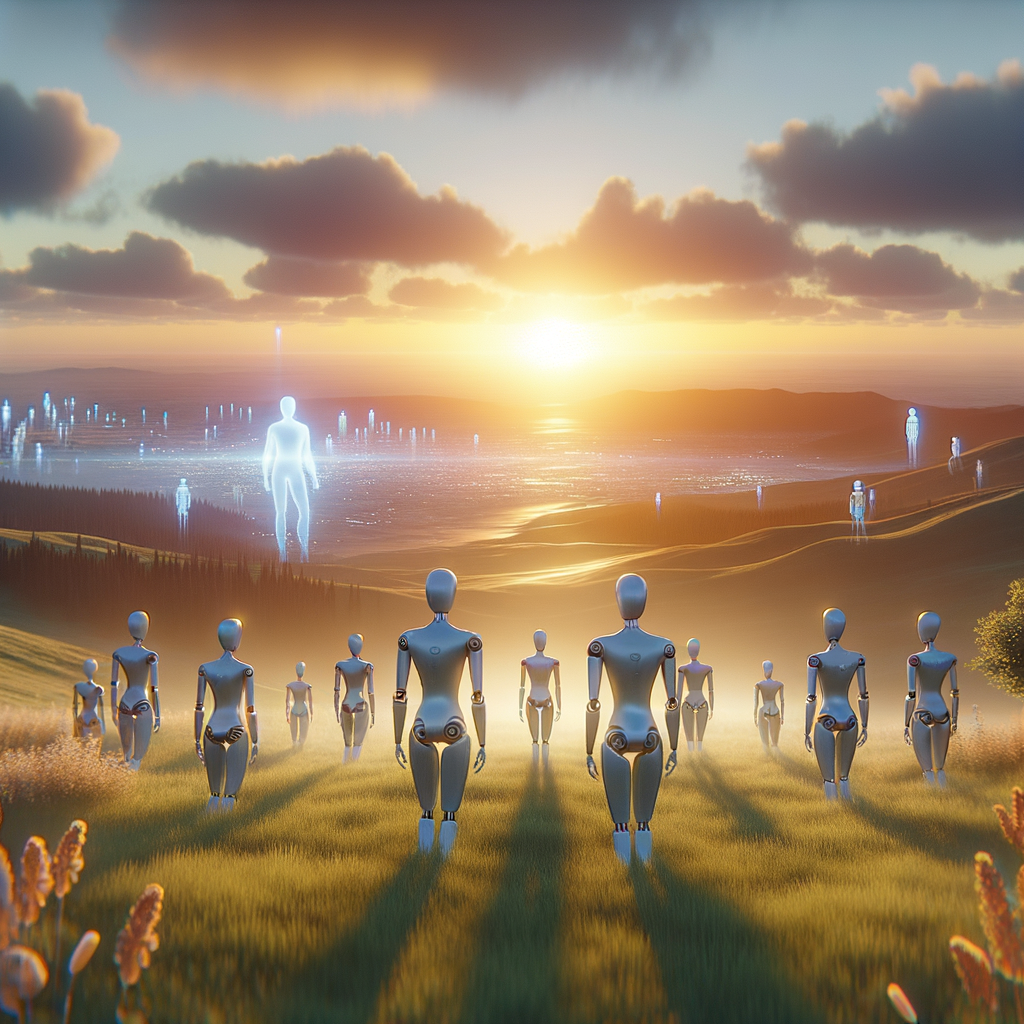
Beyond the Horizon: Unveiling the Future of Autonomous AI Agents and Their Impact on Society
Explore the burgeoning field of autonomous AI agents, as we delve into their transformative potential across various sectors such as retail, transportation, and education. Discover how these agents are poised to revolutionize everyday life, the technological advancements driving them, and the ethical considerations they bring to light.
Beyond the Horizon: Unveiling the Future of Autonomous AI Agents and Their Impact on Society
In the realm of artificial intelligence, few concepts inspire as much fascination and intrigue as the idea of autonomous AI agents. These agents, operating independently to perform tasks without human intervention, represent not just the pinnacle of technological advancement, but a radical shift in how industries and individuals approach everything from problem-solving to everyday activities.
Understanding Autonomous AI Agents
Autonomous AI agents are algorithms or software entities designed to undertake tasks autonomously, without direct human guidance. Their ability to perceive their environment, make decisions, and act upon those decisions allows them to operate across a wide spectrum of applications, from managing supply chains to personal shopping assistants.
The technology behind these agents involves a complex interplay of machine learning, natural language processing, and data analytics. By leveraging immense datasets and sophisticated learning algorithms, they can address challenges in ways that were previously unimaginable.
Sectors on the Verge of Transformation
-
Retail and Commerce: Imagine a shopping experience personalized to the core, where AI agents predict trends, manage inventory with unmatched precision, and tailor marketing strategies at the individual level. Retailers can employ AI agents to analyze consumer behavior, anticipate needs, and optimize the supply chain for maximum efficiency.
-
Transportation: Autonomous vehicles have long been the poster child for AI's potential in transportation. However, autonomous agents extend beyond driving. They can optimize traffic flow, predict maintenance needs for public transit, and even manage logistics in urban environments, potentially reducing traffic congestion and improving public safety.
-
Education: AI agents can revolutionize the educational landscape by offering personalized learning experiences. They can assess student performance, identify areas needing improvement, and tailor educational material to suit individual learning styles, thereby fostering a more inclusive and effective learning environment.
Technological Advancements Driving Autonomy
The rapid development of technologies such as computer vision, neural networks, and reinforcement learning accelerates the capabilities of autonomous AI agents. These technologies empower AI agents to process visual data, learn from their interactions, and even develop strategies over time, much like human decision-making processes.
Challenges and Ethical Considerations
Despite their potential, autonomous AI agents raise significant ethical questions and challenges. The prospect of reduced human oversight in decision-making processes sparks concerns over accountability. Who is responsible when an AI agent makes a detrimental decision? Moreover, the potential for job displacement and privacy invasion looms large.
It's crucial to address these ethical concerns by establishing robust guidelines and frameworks for AI development and deployment. Engaging in an open dialogue among technologists, ethicists, policymakers, and the public can help navigate the nuanced landscape of AI ethics.
The Road Ahead
As we look to the future, the integration of autonomous AI agents into daily life seems inevitable. These agents promise to enhance efficiency, enrich personal experiences, and drive innovation across all facets of life. However, realizing this vision requires a careful balance between technological innovation and ethical responsibility.
By embracing the potential of autonomous AI agents while cautiously addressing the challenges they pose, society can unlock new pathways to progress and opportunity. The journey may be complex, but the future it offers is nothing short of revolutionary.